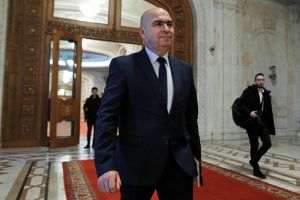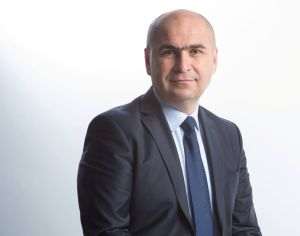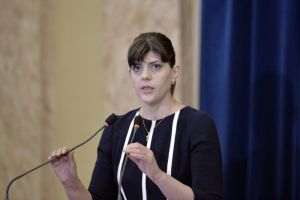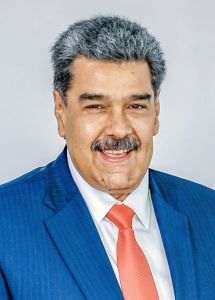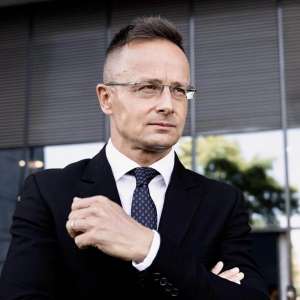Not even now, during my recent polemic, did I receive the answer to my proposals.
I never received the answer from any of the Romanian experts.
The only ones that ever truly gave me an answer were three foreigners and all of them did so unofficially, in private conversations.
Paradoxically enough, in 1998, the first one was one of the senior experts of the USAID, with whom I was waging a full-on journalistic battle - his name was De Maynard, I don't know if he is still alive, he was close to retirement back then and I was bound by a confidentiality agreement not to speak about him for a while, because I would have endangered his job and his pension.
He had come in for an audit, to assess the flaws of the Rasdaq project, which BURSA had shockingly pointed out.
He asked for a private conversation with me, at the headquarters of the newspaper.
An argument began, which for me was exhausting; he had extensive financial and banking knowledge, which had overwhelmed me, I was struggling to uncover the mistakes in his arguments, which concerned areas I barely had a notion about (he had been a representative of the World Bank in an Asian country).
After about two hours of battle, he started smiling, then he outright laughed: "OK! OK! I just wanted to test you! To see who we're dealing with and how resilient you are. Now I know who you are and what you want - the first principle in a confrontation is to know your enemy", he told me.
And he went on to say, shockingly:
"Of course you are right! Of course our system places you at a disadvantage and yours is the rational one!"
And then he said:
"I feel I have to tell you that you will lose this battle for your country and as a matter of fact, I feel pleasure in telling you that. In 1990, you lost a war and of course, you need to pay war compensations. Regardless of how much you struggle, those compensations will be paid!"
And more:
"It's obvious that shared in bearer form and the direct transactions, which you support, are the solution to your market, but no one will believe you! And I find it obvious now that, even thigh I am warning you, you will never stop fighting in vain."
Thank you for your honesty, Mr. De Maynard, whether you are still alive or not!
I think that sometime in 2000, the OECD held a "round table" on the issue of corporate governance at the Hilton hotel, which I "covered" (in journalistic terms) in full, with interviews and reports, getting in contact with a financial American journalist from the Wall Street Journal, a middle-aged man whose name I don't remember, with a remarkable expertise in the sector.
He had been hired by the OECD specifically for that occasion.
I told him about my principles.
He thought for a second, and then his face lit up, exclaiming: "Of course that's how it should be done! What the hell are they doing over here?!"
What it means being a journalist, you only need a second to figure something out!
In 2001, I had the privilege of an argument with American Joseph Stieglitz, a Nobel prize winner, on the very year he received that award.
The conversation took place in a room away from the public of the Mariott Hotel.
He gave me 45 minutes, during which time the gloves were off, meaning he did not spare me words like "primitive", "savage" and "absurd".
After three minutes, his face had turned red, and he was speaking loudly.
I didn't get intimidated - I have training - and I patiently answered every one of his objections.
In the end he told me that I had exhausted him (even though he was only eight years older than me):
"Yes, I have to admit that my theory is valid, is logical and self-sufficient", Stieglitz told me, but he went on to say: "I will never agree to something like that and I will always fight against such an barbaric system!"
I told him: "I didn't ask you to agree to it, just to provide a theoretical validation for it. You did so. Thank you!"
These are the only experts that have ever truly given me an answer to what I claim.
I've had numerous contacts, dialogues, with all kinds of experts, from the local ones, to those of the World Bank (by the way, in 2001, I officially forwarded my theory to the World Bank, but I never received an answer).
When the experts do respond, they all do so partially, off-topic, just the way it happened during the recent polemic: they pick on a less common aspect, which is not part of their views, then they shake in disgust and reject the theory without arguments.
That's the best case scenario, that is when they do not outright call me a moron or an amateur.
In reality, nobody is a professional, in this narrow field of implementing the stock market in a virgin territory.
There are numerous stock market experts, but almost nobody knows how to build a stock market from scratch.
Nobody from the World Bank, the USAID, the OECD or any other entity that has stock market experts had any theories on how to implement it on a virgin territory.
Today they may have compiled observations deriving from this experiment in the Eastern European countries, but the theory hasn't taken a more concrete shape, and the unclear elements remain, even in the studies conducted by top experts.
In these theoretical circumstances, the most reasonable attitude is to carve out your own path.
To use your own mind to judge what is to your advantage and what is not.
Yes, you can import the mechanisms of the organized market, the logistics, the university classes, because it would be stupid to reinvent the wheel.
But you can't import the implementation strategy, because nobody has it.
My theory is extremely simple: in order for the equity market to work, we've got everything we need, except investors/liquidity (the reasons for that don't matter); since the kneecaps of mutual funds have been shattered, I am forced to make do by any means, to make liquidity flow in any manner possible towards the capital market; the only way to do so is to get the stock market in touch with the population DIRECTLY; this can only be done by promoting direct transactions; transactions of any kind, even direct ones, lead to concentration of money and securities into strong hands; when they reach "critical power", these concentrations leave direct transactions (which they no longer deem secure enough) and get to the intermediated ones (which they deem safer), thus providing liquidity to the organized market.
The process is similar for issuers as well.
Simple.
It's the basics.
I don't see any other way for a turnaround for our market.
I don't see how the multiple issues we are faced with can be dealt with otherwise.
Let's grab 5% of those savings of 45 billion Euros and bring them into the market.
Let's create a large pool of money and shares in the informal market, to subsequently bring them into the regulated market.
Let's create liquidity for the regulated market, which would make it deep enough to be attractive to foreign investors.
Let's get today's market "notaries" - the brokers - to work, and have them compete with the "free -of-charge" market of direct transactions; only then will they deserve their commissions, when investors will choose to pay for their services, and not because they have to, as has been the case over the last 18 years; and only like that can we get the brokers to align ethically and professionally to a higher standard.
I don't see how else we could establish a correct relationship between the stock market and the real economy, how else the role of the stock market of providing services to individuals and companies, and of maker of economic policies could be restored.
I don't see how else the stock market could actually become necessary.
Sometime during the recent polemic, somebody asked whether I still had any hopes for the stock market.
This was my answer:
"During the polemic, I've said about 2-3 times that I've gotten bored and I explained that that boredom was coming from the fact that I was being forced to repeat the same things over and over.
Boredom also implies lack of hope.
The level of dialogue in the stock market community is causing my lack of hope.
However, it is said that "hope is the last to die", so when Doru started off the polemic (it is his merit), I immediately entered the fray.
I thought it was my duty to once again stand behind my convictions.
"Hope?"
This is a good conclusion for this article.
The conclusion is a question, without any illusions.







